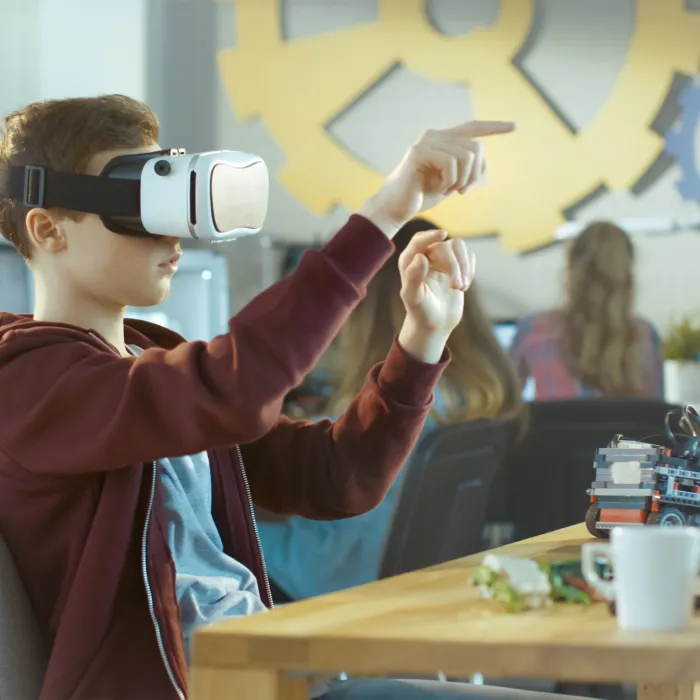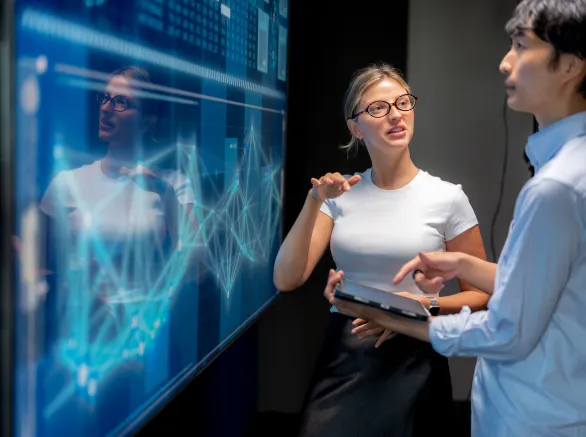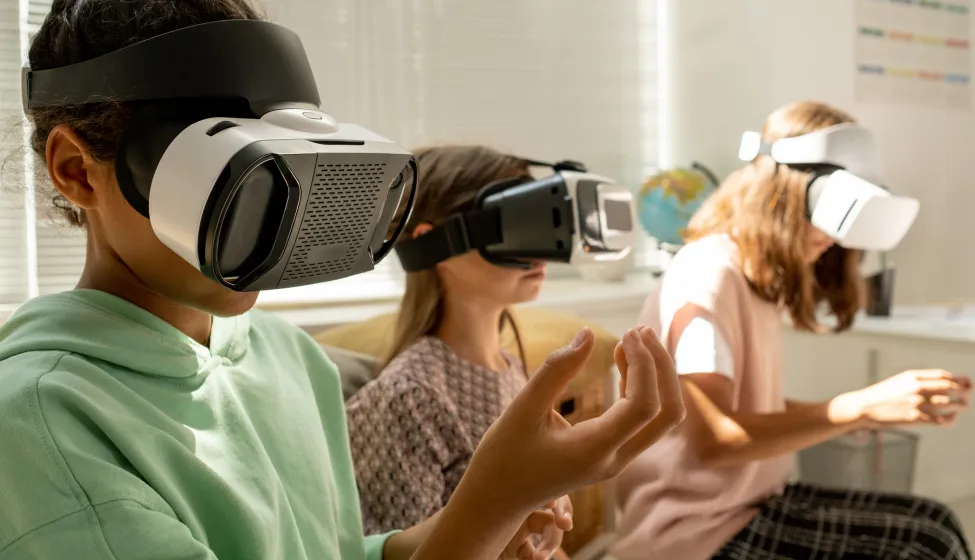July 2, 2025
The growing prevalence of virtual reality technology, including the use of VR headsets and related gaming platforms in applications for children, has led to health and safety considerations over the possible side effects of prolonged use. A 2022 report by Common Sense Media found that 17% of U.S. children aged 8 to 18 years live in households with VR headsets and that 22% of 8- to 12-year-olds and 27% of 13- to 18-year-olds have tried VR technologies.
In their study, "Effects of Virtual Reality Use in Children 10-12-Years-Old," published in the journal Frontiers in Virtual Reality, Exponent scientists Nichole Breeland, Ashley Clark, Ilke Oztekin, and Rachel Kelly, and co-author Karol Silva, explore the physiological and psychological impacts of VR use in developing children. The study, centered around 60-minute VR play sessions over four consecutive days, measured participants' visual functioning, visuomotor coordination (including hand-eye coordination), postural balance, executive function (assessed via inhibitory control, or the function enabling individuals to suppress or inhibit an automatic response), and visual and musculoskeletal discomfort (including symptoms of visually induced motion sickness).
The findings of the study indicate that health and safety consequences are unlikely to occur from moderate use of VR in 10-to-12-year-old children. These results confirm and extend prior work in the field, providing updated, evidence-based insights that could be used to develop guidance on children's VR use.
The authors point to future research opportunities to quantify the effects of VR immersion for children involving longer session durations, more sessions per day, and more consecutive sessions per week. This information could help VR headset manufacturers and software designers understand physiological and psychological outcomes related to greater use patterns.
This study was the first of its kind to explore the impact of VR use on children's executive function, a key developmental ability. Taken together, the study urges future research in the area to assess other key measurements associated with children's developmental functioning, including related metrics such as working memory and children's socioemotional wellbeing.

"Effects of Virtual Reality Use in Children 10-12-Years-Old"
Access the full version here
From the publication: "This is the first study to incorporate a direct assessment of executive functioning, specifically inhibitory control, providing novel insights into cognitive domains previously unexamined in VR safety research involving youth."
Insights




